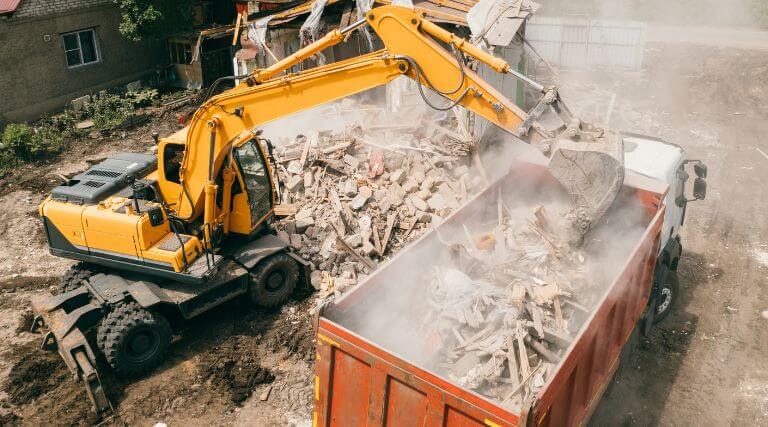
The construction industry is undergoing a transformation as sustainability takes centre stage. Eco-friendly construction is no longer a niche practice; it’s an essential approach to meet environmental standards and build a greener future. Whether you’re working on a small renovation or a large-scale project, incorporating eco-friendly techniques can reduce waste, save money, and improve energy efficiency.
In this blog, we’ll explore top tips and techniques for eco-friendly construction that will help you make a positive environmental impact while maintaining high-quality results.
Why Eco-Friendly Construction Matters
The construction sector is a significant contributor to global carbon emissions and waste production. Traditional building methods often rely on energy-intensive materials and create large amounts of waste. By adopting eco-friendly techniques, you can:
- Reduce greenhouse gas emissions.
- Minimise waste sent to landfill.
- Improve energy efficiency.
- Lower long-term costs for building maintenance.
Sustainable construction is not just about meeting regulations; it’s about creating buildings that benefit both the environment and the people who use them.
Use Sustainable Building Materials
Recycled and Upcycled Materials
Opt for materials with a lower environmental footprint. Recycled steel, reclaimed wood, and upcycled bricks are excellent choices. These materials not only reduce waste but also add character to your construction projects.
Bamboo and Timber
Bamboo is a fast-growing, renewable resource that works well for flooring, walls, and structural components. Responsibly sourced timber certified by the Forest Stewardship Council (FSC) is another great choice for eco-conscious builders.
Low-Impact Concrete
Traditional concrete production is energy-intensive. Consider alternatives like green concrete, which uses industrial by-products such as fly ash and slag to reduce carbon emissions.
Prioritise Energy Efficiency
Insulation and Glazing
High-quality insulation and double or triple glazing can drastically reduce energy consumption by keeping buildings warm in winter and cool in summer. Choose eco-friendly insulation materials like sheep’s wool, cellulose, or cork.
Solar Panels and Renewable Energy
Incorporating solar panels or other renewable energy sources can significantly cut electricity costs and reliance on non-renewable energy. Consider building orientation to maximise natural light and heat from the sun.
Smart Building Systems
Automated lighting, heating, and cooling systems optimise energy usage, making buildings more efficient and reducing wastage. Smart systems also enhance the comfort and convenience of occupants.
Embrace Waste Management
Construction waste is a major challenge. Proper waste management can help you divert materials from landfill and save resources.
Efficient Skip Hire
Hire skips from a reliable provider like Cheap Skip Hire Prices. Our services ensure construction waste is disposed of responsibly, prioritising recycling wherever possible.
Deconstruction Over Demolition
Instead of demolishing old buildings, consider deconstruction. Salvaging materials for reuse can minimise waste and preserve valuable resources.
Compostable Waste
Organic materials like untreated wood, sawdust, and natural fibres can be composted. This reduces landfill waste while providing nutrient-rich compost for landscaping.
Focus on Water Conservation
Water is a precious resource, and construction projects often consume large amounts of it. Implement water-saving strategies to reduce your environmental footprint.
Rainwater Harvesting
Install rainwater collection systems to provide water for non-potable uses such as landscaping, cleaning, and even construction processes.
Greywater Systems
Greywater recycling systems can treat and reuse wastewater from sinks and showers, reducing the demand for fresh water.
Low-Flow Fixtures
Incorporate low-flow taps, toilets, and showerheads into your designs to conserve water without compromising functionality.
Design for Longevity
Modular Construction
Modular construction involves creating prefabricated sections that are assembled on-site. This method reduces waste, speeds up construction, and often uses materials more efficiently.
Adaptive Reuse
Design buildings with flexibility in mind, allowing them to be easily adapted for future needs. This reduces the likelihood of demolition and promotes sustainability over time.
Durable Materials
Using high-quality, durable materials can extend the lifespan of a building and reduce the need for frequent repairs or replacements.
Green Landscaping
Native Plants
Incorporate native plants into landscaping to reduce water and maintenance requirements. Native plants are adapted to local climates and can thrive with minimal intervention.
Permeable Surfaces
Replace traditional pavements with permeable surfaces that allow rainwater to soak into the ground, reducing runoff and promoting groundwater recharge.
Green Roofs
Green roofs, which are covered in vegetation, improve insulation, reduce heat islands, and provide a habitat for wildlife. They also absorb rainwater, helping to manage drainage.
Contact Us for Eco-Friendly Waste Solutions
Eco-friendly construction is a commitment to building sustainably for a better future. By adopting the tips and techniques outlined above, you can create efficient, high-quality buildings while protecting the environment.










